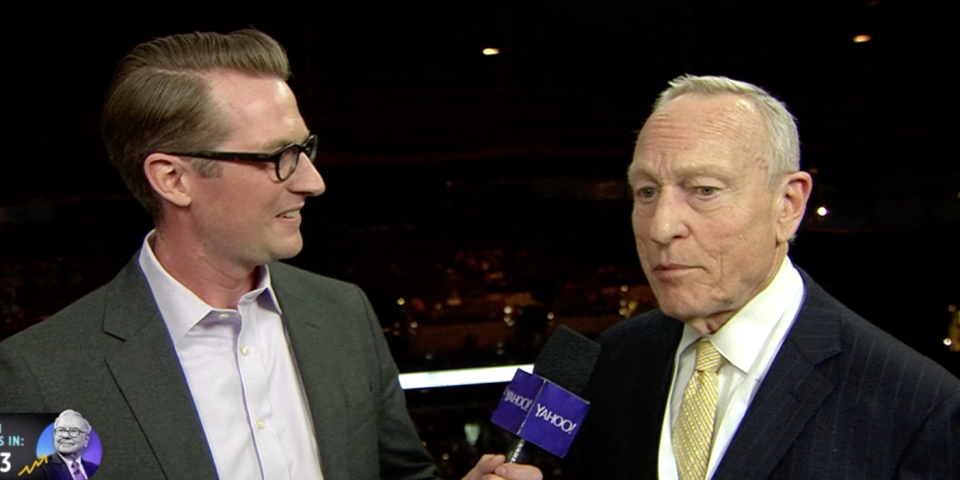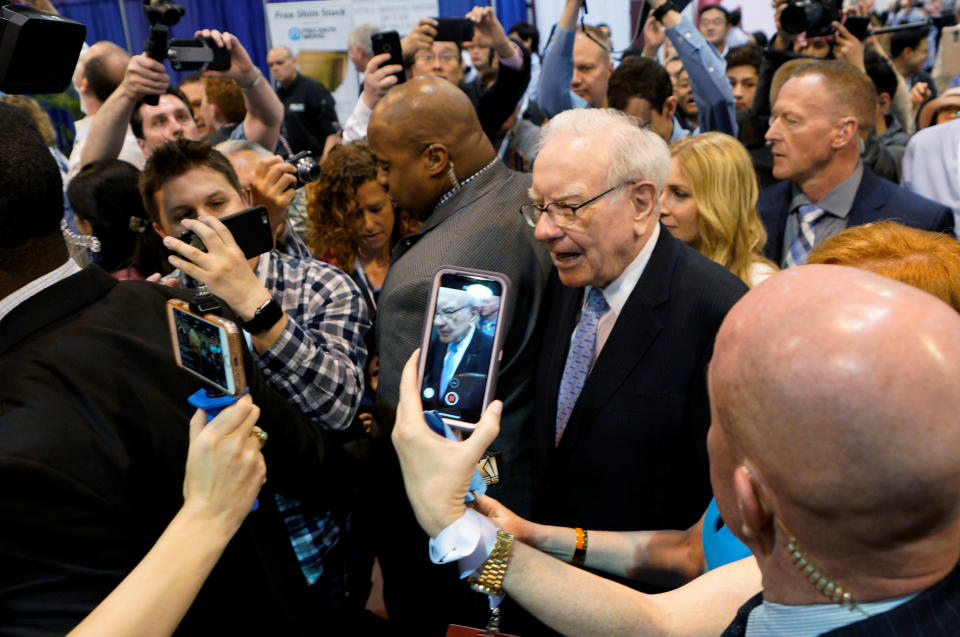Berkshire Hathaway board member Ron Olson: 'This is not a bake-off for Warren's successor'
Berkshire Hathaway CEO Warren Buffett will be 88 in August.
Berkshire vice chairman and Buffett’s long-time right hand man Charlie Munger turned 94 in January.
And as these two held court at Berkshire Hathaway’s (BRK-A, BRK-B) annual meeting in Omaha this past weekend, a common topic of discussion among shareholders in attendance was how much longer Buffett and Munger will be around, and who will replace them at the helm of the U.S. conglomerate.
Speaking with Yahoo Finance at the annual meeting, Berkshire Hathaway board member Ron Olson said that the recent elevation of Ajit Jain and Greg Abel to vice chairmanships and the addition of investment managers in recent years are not setting up a contest to replace Buffett as CEO.
“Succession for the board is a regular topic,” Olson said. “And we know what we would do if a bus hit Warren tomorrow. But I think to some extent, the media has overplayed the vice chairmanship given to Greg Abel and to Ajit Jain. This is not a bake-off for Warren’s successor.
“To the contrary, I think people have missed on a very important point — I see it as very much an extension of the Charlie and Warren show.”

At the annual meeting, Buffett was asked by journalist Carol Loomis about his role at Berkshire Hathaway, to which Buffett said he’s been “semi-retired” for decades.
“Clearly, we’ve got two people in Ajit and Greg that are smarter, more energetic, just bring more to the job every day [than I can],” Buffett said. “Ted [Weschler] and Todd [Combs] not only do a great job with the $12 or $13 billion each…they have also done a number of things for Berkshire that they do cheerfully.”
Buffett added that, “I think semi-retired probably catches me at my most active point.”
Olson also noted that the biggest change he’s seen at Berkshire Hathaway since joining the board in the summer of 1997 can be summed up by one word — size.
And as Berkshire has grown larger, “it has become increasingly more difficult for one person, namely Warren, to oversee not just the use of our capital, but the ongoing businesses,” Olson said.

“While I think he’s a terrific job all these years, it’s obvious to him as well as the rest of the board members that getting some help in that regard will extend this unique asset that we all share and want to extend as long as we can by giving them a little more support, and giving two very able people the opportunity to get to know a broader segment of the businesses than they had been operating themselves.”
So while Buffett might be the greatest investor of the last 50 years and one of the most important and influential businesses leaders in American history, there is a limit to how much he can handle on his own.
And the more Berkshire’s existing leadership can do to ease his responsibilities, the more the company becomes prepared for life after Buffett, and the clearer the picture becomes of what that operating structure might look like.
—
Myles Udland is a writer at Yahoo Finance. Follow him on Twitter @MylesUdland


